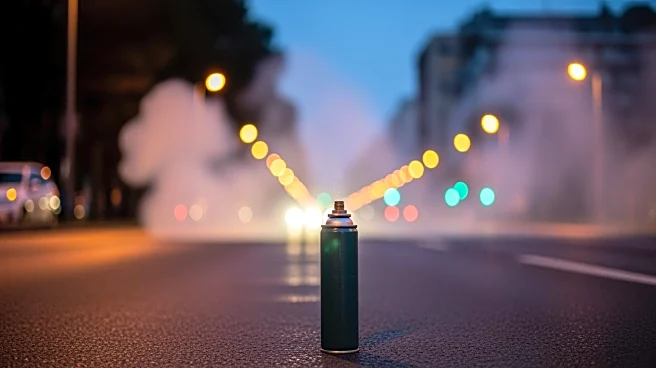What's Happening?
In October 2025, federal immigration agents have intensified their operations in Chicago, focusing on affluent neighborhoods such as Lakeview and Lincoln Park. The Trump administration's 'Operation Midway
Blitz' has led to confrontations between agents and local residents, resulting in the use of tear gas. Agents have been targeting areas that had previously avoided serious confrontations, arresting individuals at various locations including a comedy club and a gas station. Local aldermen have reported aggressive tactics by agents, including detaining workers and conducting operations near schools. Community members have actively protested these actions, using whistles to alert others of ICE presence and demanding agents leave their neighborhoods.
Why It's Important?
The escalation of immigration enforcement in Chicago highlights significant tensions between federal authorities and local communities. The use of tear gas and aggressive tactics by immigration agents has drawn criticism from local leaders and residents, who view these actions as contrary to the city's values of inclusion and compassion. The protests reflect widespread concern over the impact of mass deportation raids on immigrant communities, potentially leading to increased fear and instability. Businesses and educational institutions in affected areas are also experiencing disruptions, with concerns about safety and the chilling effect on local commerce.
What's Next?
As protests continue, local leaders and community activists are likely to intensify their efforts to resist federal immigration operations. There may be increased legal challenges and calls for policy changes at the city and state levels to protect immigrant communities. The situation could lead to further scrutiny of federal enforcement tactics and potential legislative action to address the concerns raised by residents and officials. The ongoing developments may also influence public opinion and political discourse surrounding immigration policy in the U.S.
Beyond the Headlines
The aggressive enforcement actions in Chicago could have broader implications for national immigration policy and the relationship between federal and local authorities. The use of tear gas and other tactics may raise ethical and legal questions about the treatment of immigrants and the rights of communities to resist federal operations. This situation may also contribute to long-term shifts in public attitudes towards immigration and influence future policy decisions at various levels of government.









